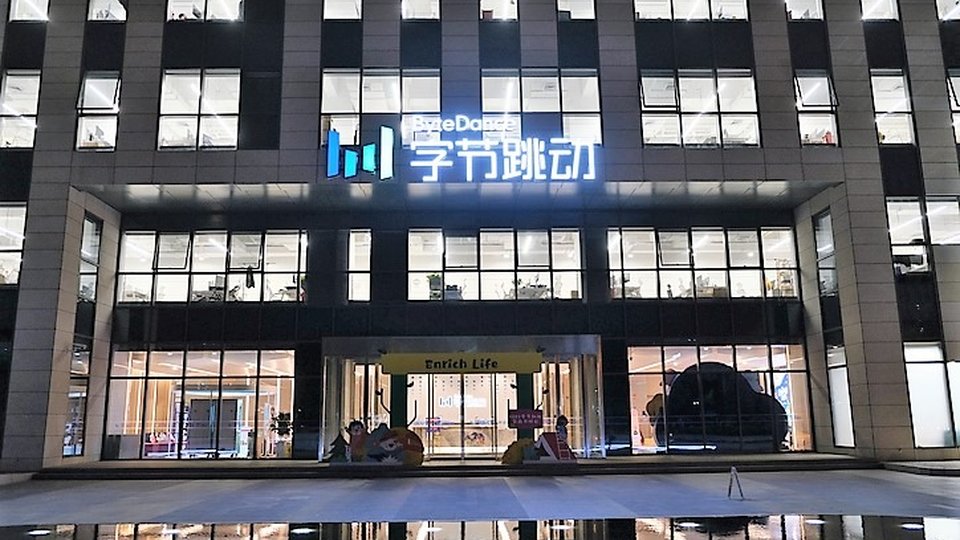Commentary
China flexes acquisition muscle in streaming VR hardware
Standalone VR hardware is clearly making its mark globally in the attractions and amusement space.

December 13, 2021 by Kevin Williams
The global impact of 5G streaming VR architecture can be seen on one of the largest acquisitions in the current phase of the attraction and amusement industry's history.
ByteDance, better known as the parent company to social media app TikTok, was reported by Chinese media as having placed a 5 billion Yuan ($771 million) investment in Pico Interactive, a major development by the Chinese sector towards establishing a place in the growing momentum towards established VR.
The Pico Neo family of VR headsets is seen as strong competition in enterprise application to current industry leaders like Oculus, owned by Facebook (soon to be called Meta), which have found it difficult to establish a presence in Asia, as seen by the shuttering of their hardware partnership with Xiaomi in China.
Qualcomm XR chipset takes hold
The interest in 5G VR streaming had been revealed by Qualcomm during its technology demonstration, as well as a live presentation using the new Qualcomm XR chipset. Partners using the chipset and architecture included Pico, who have seen deployment of this VR streaming capability in many proof-of-concept demonstrations. The VR headset manufacturer has also benefited from a dedicated Western presence that has seen important partnerships in the commercial application of the technology. The company has a more open door policy to location based entertainment deployment in comparison to others.
Most recently, LBE developers have begun using the Pico Neo family of systems in fielded VR attractions.
Spree Interactive, known for its family-friendly, multi-player experiences, announced a strategic partnership with Pico in 2021, and recently demonstrated the latest version of the Spree Arena, depending on the Pico Neo 3 to supply the immersive displays to the audience.
Numerous other LBE VR developers have migrated over to using the Pico Neo systems, including the launch of the latest platform.
Pico VR on the move
The acquisition by ByteDance will offer new investment to the Pico VR range, but also seems to spell a period of development that will be expanding beyond enterprise, and possibly towards new consumer entertainment development. ByteDance is a corporation seeking to be seen in the same light as Netflix and even Facebook and is looking at new technology to consolidate its position. How this VR acquisition could be associated to the vast social media presence achieved through TikTok will be revealed in due course.
Speaking of large Asian social media corporations investing in VR and hoping to fill the void left by the Facebook hardware partnership with Xiaomi in China, it was announced that Chinese online entertainment corporation iQIYI had launched a VR headset.
Called the QIYU 3, the headset is clearly inspired by the Oculus Quest 2 and is also powered by the Qualcomm Snapdragon XR2 platform. With a price of ¥3,499 ($540), the new system was revealed in a livestream to millions of the company's Asian subscribers, confirming that the hardware would sync with iQIYI's massive content library of games and movies.
One of the other large China-based VR announcements came from DPVR, previously known as Deepoon. The corporation has developed an extensive range of VR headsets and is well known for systems such as the DPVR E3, which had been a go-to solution for many Chinese VR amusement pieces. Continuing its strong investment in commercial VR, the company revealed the launch of the DPVR P1 Ultra 4K, the latest in its range of standalone headsets that incorporate the most advanced display technology to date.
As with the competition, the system supports the Qualcomm Snapdragon architecture. But the DPVR business strategy is to focus heavily on commercial business with this new system, while still making a smaller variant for consumer interest.
This news of mounting investment from the Asian market into the latest phase of VR will pressure Western market leader Facebook regarding access to a considerable audience — just out of reach to its standalone platform. But likewise, the investment by many of these Chinese VR platforms into a commercial business application, including LBE VR, could establish a lead that will be hard to compete with.
Synthesis VR steps forward
The next of the major developments sees the creation of an immersive entertainment platform that will encapsulate many of the major disciplines emerging within the VR arcade scene. Following close behind the acquisition of SpringboardVR by Vertigo Games, owned by Koch Media, and the next largest VR arcade management, content and support platform company, Synthesis VR, is signing a binding letter of intent with Fantasy 360 Technologies, previously known as ImmersiveTech.
Following a success floating on the Canadian Securities Exchange, Fantasy 360 has started a program to establish the soon-to-be-launched "Uncontained" hyper-immersive attraction. The partnership with Synthesis VR will interconnect the engine and management platform into its plans.
Synthesis VR currently supports a family of some 300 VR entertainment facilities internationally, offering over 325 exclusive VR arcade titles, supported by its engine and dedicated management platform. The infrastructure supports not only the operators, but also content providers and the players, with leader board and personalized marketing and promotions. The operation will continue to support the independent operators and developers, and the merger with Fantasy 360 will receive the support and expertise to grow its business model and adapt to the changing business landscape.
In continuing news surrounding the VR amusement development landscape, it was revealed that Minority Media, an award-winning studio famous for its Transformers: VR Battel Arena, four-player VR enclosure amusement system, has undergone a change of brand — newly renamed Meta4 Interactive. This rebranding comes as the operation expands its focus. The company has expanded into an international operation and, under Meta4, the operation will broaden its reach in location-based entertainment, consumer game development and what it sees as content for the metaverse. The operation is planning to make some major announcements in this space soon.
Standalone VR hardware is clearly making its mark globally in the attractions and amusement industry.
(Editor's note: Extracts from this blog are from recent coverage in The Stinger Report, published by KWP and its director, Kevin Williams, the leading interactive out-of-home entertainment news service covering the immersive frontier and beyond.)
About Kevin Williams
Along with advisory positions with other entrants into the market he is founder and publisher of the Stinger Report, “a-must-read” e-zine for those working or investing in the amusement, attractions and entertainment industry. He is a prolific writer and provides regular news columns for main trade publications. He also travels the globe as a keynote speaker, moderator and panelist at numerous industry conferences and events. Author of “The Out-of-Home Immersive Entertainment Frontier: Expanding Interactive Boundaries in Leisure Facilities,” the only book on this aspect of the market, with the second edition scheduled for a 2023 release.
 ChatGPT
ChatGPT Grok
Grok Perplexity
Perplexity Claude
Claude






